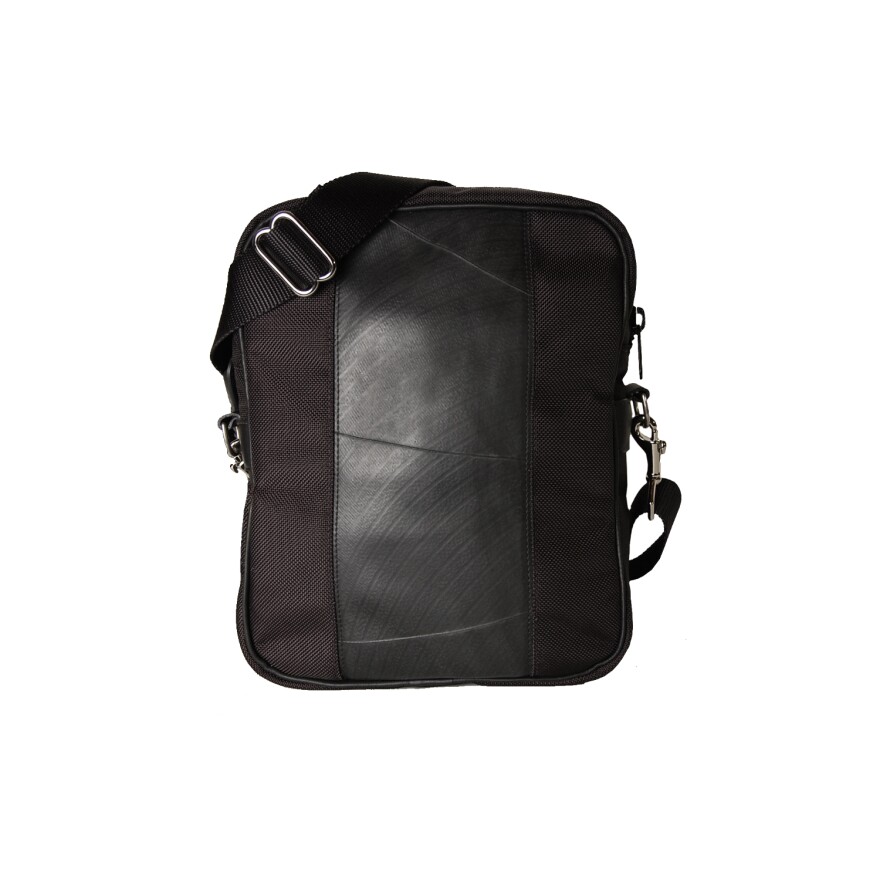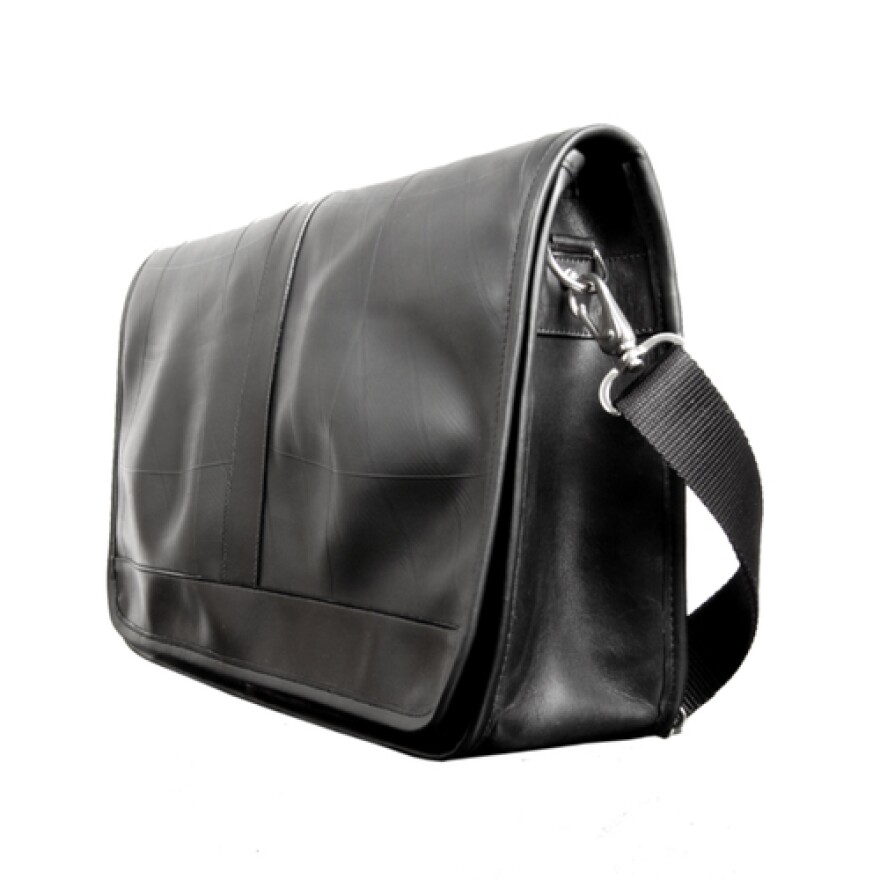Every year, 250 million inner tubes from tires are tossed into landfills. It’s an environmental problem, but it’s also a business opportunity.
America’s highways are filled with trucks that ride on tires, and when those wheels of rubber must be replaced, their inner tubes often end up in the trash. That seemed a shame to Angela Greene.
“I stumbled upon a backpack that I really liked. It was made of inner tubes, and we just became very interested in inner tubes, because they’re very pretty.”
That’s because manufacturers emboss their tubes with various patterns to set themselves apart.
“We’ve got some tubes literally have stars all over them, deep lines, and when we clean them up, they look like works of art.”
That’s Kenneth Kobrick, Greene’s partner in a company called Necessary Recycling. They started the business by delivering free coffee and donuts to tire stores around Richmond. Owners happily passed along piles of old inner tubes. Greene and Kobrick washed, cut and sewed them into wallets and card holders, backpacks, brief cases and bags of all kinds.
“A hi-tech security company contacted us. They guarded politicians and high end people who go overseas. They wanted a bag that didn’t look like it carried ammunition or weapons, so we took a normal messenger bag and expanded and outfitted it, so we’ve had everything from cosmetic bags to gun bags.”
At first they designed women’s purses as well, but it was soon apparent that making men’s accessories was easier.

“Most of our customers, well about 50%, were men. Men spend a lot of bags and accessories. They’ve outspent men for the last few years.A man’s bag too, we don’t have to deal with so many seasonal colors, which we would with a fashion purse. Black and brown and a guy is satisfied.”
Soon after their founding in 2003, Greene and Kobrick began running out of raw materials, so they went online and requested cast-off inner tubes from as far away as Texas. Today, they have 90 tons stored in their suburban Richmond barn.
“We one day had received a call at 8 o’clock in the morning, and the truck driver said, ‘So where are you located, and he had five tons. We were expecting them a few months down the line, but they just ended up in the yard. The pile was about six feet high, and there were probably 2,500 tubes in the pile, and it was 96 that day, so we had to put all those tubes in wheelbarrows and carry them over to our enclosed barn. We don’t want them in the yard. We do have neighbors.”
And those neighbors might be alarmed by what they hear as Greene and Kobrick sort through the inner tubes. It turns out they’re also popular with spiders.

“Black widows like real dark, damp places, and the inner tubes give them that. The summer time we run into wood bees, and they just like to just hang around. I’m allergic to bees, so it can make it really interesting. There’s a lot of running involved. Running and screaming. We’re very popular in the neighborhood.”
Now you might expect these two to have degrees in business or fashion design. In fact, Greene’s last job involved operating a forklift at a steel plant, and Kobrick works as a welder. Still, they say their high-end bags are attractive enough and sell well enough that Necessary Recycling donates a significant portion of its profits to programs that benefit inner-city kids.


